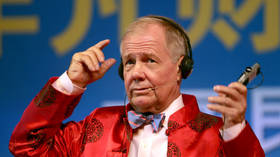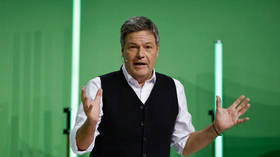Russian retail market needs innovation

Russia’s retail market has significant innovation potential, but this doesn’t always translate into reality, with at the annual Consumer 360 forum hearing that Russian companines need to become more innovative.
Louise Howley, Nielsen Bases account director, and Russian regional manager, noted that, in terms of innovation, Russia needed to catch up with more forward thinking economies – such as Japan – despite the recent focus and prominence given to the issues by President Medvedev and projects such as the Skolkovo technology centre. More positively, she said that the purchasing power of the Russian middle class was increasing and would do so faster as the economic recovery gained pace.She noted the Russian FMCG market had shown strong growth over the last 5 years, despite the downturn, pointing to consumer openness to innovation, but added that Russia had few innovative products on the Russian retail market. Louise Howley said that what appeared to be innovation was often just minor product modification.“What we’ve seen is not true innovation. We’ve seen a lot of new varieties of products, but not true innovations. And this creates complexity for brand managers, retailers and consumers. The key to success in Russia’s challenging environment is to be disruptive, to be different, to stand out.”Howley added that Russian companies often lacked a clear understanding of the consumer, and their preferences, and that this then lead to an inability to be first with products and to be able to harness the talent of “local thinking” to adapt to regional variation. She said that demographic issues also added to the complexity of addressing Russian consumers.“The population is diverse and income discrepancies are enormous, with Moscow having recently been named a number 1 billionaire city and about 30% of Russia’s population leaving below the poverty line. And even if we take the middle class there’s still a huge gap between the upper – middle and the lower – middle ones.”Markets experts said that Russia provided many opportunities and a diverse regional, educational and cultural setting. Jonathan Banks, managing partner at Jonathan Banks Associates Ltd, said that the focus on emerging markets placed Russia’s potential firmly in the spotlight.“On the growth side, as an example, G7 markets in the period from 2008 to 2014 are expected to provide for 13% growth, while BRIC nations – including Russia – were looking at 61%. So, growth in these markets is tremendous and we want to capitalize on that.”Banks added that, after a sluggish economic rebound, Russia was tipped to pick up steam soon, with confidence following.“We start to get better than the global average. We expect Russia to go back to the same sort of confidence as we had in 2005 and 2006.”This meant that the time was right for Russian retailers to begin to become more progressive in their customer address, and that the time for innovation was ripe. Participants at the forum heard that this could involve greater adoption by retailers of internet and social networking formats, as well as more intense branding and pricing competition, with the imminent accession to the WTO likely to shakeup the local retailing environment.














